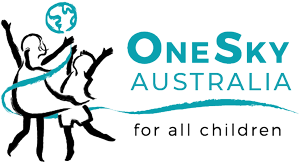Founder brings love to abandoned children in China
This article first appeared in the Straits Times on December 6, 2015:

Jenny Bowen gave up a cushy job as a Hollywood screenwriter in 1998 to re-imagine care for the thousands of abandoned children in China’s orphanages and welfare institutions.
Mrs Jenny Bowen considers herself truly lucky.
She believes she has found out quite early in her life why she was put on this Earth.
“I have come to understand a simple truth. The most fundamental thing that defines us as human is our need to love and be loved,” she says.
She feels blessed that she has found a simple way to teach vulnerable children – deprived for whatever reason – what love feels like, how to overcome adversity and how to realise their potential.
It led her to set up Half the Sky, a non-profit organisation dedicated to enriching the lives of orphaned and abandoned children in China through model programmes and caregiver training.
As the 70-year-old remembers it, her life changed forever in 1998 when she was in her kitchen in her Los Angeles home looking out into her garden.
Her three-year-old daughter, Maya, adopted from an orphanage in Guangzhou a year earlier, had morphed from a sickly, silent and shut-down child into a happy toddler secure in the knowledge that she was loved.
“I knew what I had to do. I saw something that was so simple, I knew I had to bring the love of family to abandoned children,” says Mrs Bowen, who was in Singapore recently to speak at the Credit Suisse Philanthropists Forum 2015.
That was exactly what she did. She gave up a cushy job as a Hollywood screenwriter and filmmaker to reimagine care for the thousands of abandoned children in China’s orphanages and welfare institutions which, at that time, were under a lot of international criticism for their appalling practices and even more dire conditions.
Through Half The Sky which she started in 1998, Mrs Bowen took on naysayers, manoeuvred through bureaucratic red tape, and found ways to open closed doors to become the only Westerner working with the Chinese government to overhaul its entire child welfare system.
Hers is a simple idea. It involves training childcare workers and other caregivers, using the Reggio Emilia Approach for early childhood education.
Developed by an Italian teacher after World War II, the pedagogy values the child as capable, wondrous, full of potential and resilient.
To date, her work has already made a difference in the lives of more than 100,000 children in China. And she is not quite done yet.
Irrepressibly chatty with a gift for storytelling, Mrs Bowen is the youngest of three daughters of two civil servants and grew up in a lower-middle class neighbourhood in San Francisco.
Her two sisters were much older, and her parents were too busy working to give her much attention so she was often left to her own devices.
“I didn’t have a strong family experience. It was myself and my little fantasy world. I started writing stories when I was very young,” says Mrs Bowen, who went on to study creative writing at San Francisco State College.
Theatre kept her busy and made her life more interesting.
“I acted and directed plays. I was in repertory theatre, did regional theatre across the United States, was in the American Conservatory Theatre as a junior, and acted in New York,” she says.
Married to cameraman Richard Bowen, she had two children when she was in her early 20s.
Leaving her children behind while she travelled for work soon became unbearable.”I decided to stop being a gypsy and I started directing small and low-budget plays in San Francisco,” she says.
She got into the film industry by accident. A group of actors in her theatre company were recording a radio play in a basement sound studio which belonged to filmmaker Francis Ford Coppola.
“I went there and offered myself as an apprentice because I wanted to learn about sound technology. I ended up staying on and working for Francis,” she says.
Not far from the studio was an old hotel, favoured mostly by old merchant seamen. When news broke that it was going to be torn down, many of these elderly men started picketing.
“And then the San Francisco police came on horseback and started evicting these people. I started writing about it,” she says, adding that it eventually became Street Music, the first film she wrote and directed.
The film was nominated for best feature at the Chicago International Film Festival in 1981, and won the Grand Jury Prize at the 1982 Sundance Film Festival.
She and her family moved to Hollywood. Although there were offers to direct other films, she did not like the materials she was offered.
“So I started writing myself and became a screenwriter for hire. As a screenwriter in Hollywood in those days, even if the films didn’t get made, you could make a really good living,” she says.
However, life, she says, was not particularly meaningful. All that changed one Saturday morning in 1995.
Her husband was just about to head off for a shoot, and she was getting ready to plant a packet of seeds in her garden when he drew her attention to the picture of a dying child in a New York Times article. Based on a 1996 Human Rights Watch Report, the piece highlighted the appalling neglect in China’s state-run orphanages.
“The world stopped when we read the story. For the first time, we learnt that little girls were being abandoned in China just because they were little girls – the mortality rate was more than 80 per cent, and the conditions in the orphanages were so poor,” she recalls.
The couple – whose two grown children had then flown the coop – decided they had to at least save one life. By the end of that day, she had done all her research on adoption in China.
“The notion of adopting was spontaneous and insane. We only talked about it for 20 minutes. There was no logic to the whole thing, no planning ahead. I can’t defend myself,” she says with a chortle.
The process took 18 months. She was in the midst of shooting a thriller, In Quiet Night, when she was told her adoption application was successful.
The day after filming wrapped, she and her husband flew out to China to get their baby.
She says: “There were no photos, I knew nothing. The facilitator just told me she was healthy and beautiful.”
“She was beautiful but she was not healthy. Her face was covered with sores, and she was terrified and emotionally shut down. She was nearly 20 months old and was not talking or even walking,” she adds.
Maya recoiled at contact, arching her back when she was held. For six months, Mrs Bowen put her on her lap while she cut In Quiet Night, which was about a doctor accused of molesting his daughter.
“She started walking and her first words were dialogue from my movie: ‘Tell the twooth (truth)’.”
One year later, Maya was a changed child.
Her adoptive mother says: “That day when I looked out the kitchen window, the little girl running around and playing looked as though she had been adored from the moment she was born.”
Mrs Bowen, with her husband firmly behind her, decided she had to help the other abandoned babies in China go through the same transformation.
She started her research to set up Half The Sky. It did not take long for her to realise that it would be an undertaking which would require her full commitment.
So she quit her job.
“A year later in 1999, I got permission from the Chinese to visit a couple of the welfare institutions and I started pitching to them a little programme I’d like to do.”
Her experience in selling ideas in Hollywood came in handy. With the support of other families with adopted children from China, she told the Chinese government they would like to express their gratitude.
“I said we had seen the power of a family’s love and knew how to bring this love to children in welfare institutions. By then, I had done all my research and could quote all the science.”
It took another year of negotiations, during which time the Bowens adopted another daughter, named Anya.
With international criticism mounting, the Chinese government had to do something.
“They were overwhelmed and nobody was coming forward with solutions. Maybe they were trying to get rid of me but I was given a chance to set up two pilot programmes in Anhui and Jiangsu.”
She got experts – from childhood educators to developmental psychologists – to put together a programme.
Today, the programme has become the gold standard for care of institutionalised children. The Half the Sky Foundation set up a sister organisation in China and now operates in 58 cities in 25 provinces across the country. Together with the country’s Ministry of Civil Affairs and local partners, they hope to have trained every welfare worker in the system by 2017.
Her work now sees her serving on China’s National Committee for Orphans and Disabled Children and on the Expert Consultative Committee for Beijing Normal University’s Philanthropy Research Institute.
She won the American Chamber of Commerce’s Women of Influence Entrepreneur of the Year Award in Hong Kong in 2007, and received the Skoll Award for Social Entrepreneurship in 2008.
Mrs Bowen, who wrote a book Wish You Happy Forever chronicling her experiences, is not resting on her laurels.
Earlier this year, she turned her attention to the lives and future of 23 million children under seven years old who are left behind in rural villages while their parents become migrant workers.
“We are doing a project in 34 villages in designated poverty counties in Central China,” she says, adding that it involves family skills training and engagement programmes to provide nurturing homes for these children. She hopes to take the project next year to Vietnam.
Next month, her foundation – which is supported by several corporate donors and also carries out its own fund-raising programmes – will launch OneSky, an online platform for children who are often abandoned and neglected. The name OneSky reflects her dream of taking her early childhood intervention models across developing countries.
“We want to help people think about children not as a burden but as human resource which needs to be nurtured. Hopefully, the world won’t be such a big mess,” she says.
Maya, 20, and Anya, 17, meanwhile, are best friends and have grown up to become “highly evolved young women”, she says.
“Maya is at the University of California, Davis, doing – and I didn’t influence her – early childhood development. Anya is in her final year of high school,” says Mrs Bowen, who shuttles between offices in Beijing, Hong Kong and Berkeley.
With a grin and a shrug, she says: “When I look back on my life, I can see how everything I did informs what I am doing now. The reason why I’m good at doing what I do is I make movies.
“I started with blank paper and wrote stories so I could imagine. Nothing scares me.”





